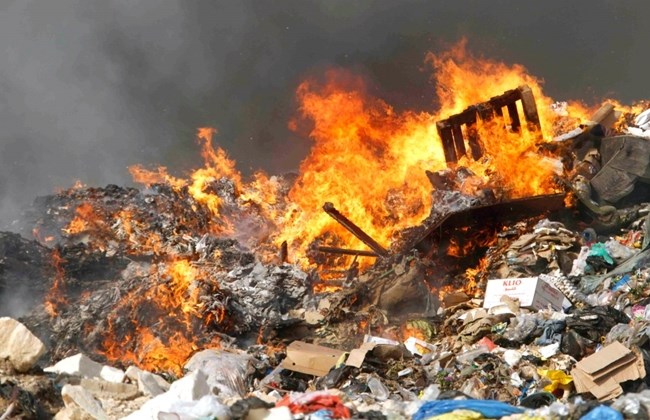
Burning of waste has become a common method to dispose of garbage due to various reasons, chief among them being the local authorities’ failure to regularly collect refuse. Besides polluting the air, the burning of waste raises a lot of health and environmental concerns.
Pollutants from backyard burning of trash are released primarily into the air — close to ground level — with no pollution controls, unlike industrial air pollution which can be regulated though the use of cleaner air pollution abatement technologies.
Today’s trash contains a lot of plastic, paper treated with chemicals, coatings and ink.
The burning of such releases toxic substances and produces many pollutants including carbon monoxide, particle pollution, ash, dioxins (a group of highly toxic chlorinated organic chemicals which are produced primarily as a result of human activity), thus presenting dangerous health conditions that can be caused by inhaling or ingesting small amounts of these pollutants.
Vulnerable groups such as small children, especially those under the age of five, the elderly and people with pre-existing respiratory conditions are at great risk of being affected.
Dangers of open burning
Most of the pollutants released into the air through burning of waste, settles and moves along the food chain.
Some of these chemicals can remain in the environment for a long time.
- Chamisa under fire over US$120K donation
- Mavhunga puts DeMbare into Chibuku quarterfinals
- Pension funds bet on Cabora Bassa oilfields
- Councils defy govt fire tender directive
Keep Reading
Particulate matter, which refers to micro particles released by open burning, can penetrate into the lungs and aggravate respiratory conditions such as asthma and bronchitis and have been associated with heart irregularities and attacks.
Open burning contributes to ground level ozone pollution, also known as smog which can worsen respiratory, heart and other existing health problems.
It can also lead to eye, nose and throat irritation, damage to the central nervous system among other effects. Environmentally, smog inhibits plant growth and can cause widespread damage to crops and forests.
Vegetation plays a critical role in photosynthesis, a process which absorbs carbon dioxide simultaneously producing the oxygen that we breathe.
If we destroy it through excessive pollution we put ourselves at great risk and promote the accumulation of carbon dioxide in the atmosphere, a major greenhouse gas which drives global warming.
Ash residue from burning can contain toxic metals such as mercury, lead, chromium, and arsenic. Unaware of the potential danger some people scatter ash in their gardens or bury in their properties.
Garden vegetables can absorb these chemicals and make them dangerous to consume.
Children can ingest soil containing these metals while rain can wash the ash into underground water and surface water, contaminating drinking water and food.
Besides contributing to air pollution, burning plastic, rubber or painted material does not only create an unpleasant smell, but also produces a range of poisonous compounds. Smoke may cause problems for asthmatics, bronchitis patients and people with heart conditions.
Burning waste produces dioxins and furans which cause cancer. Fire can spread and result in extensive damage to the environment and property.
Sustainable waste management
The proper way of handling solid waste is to reduce, reuse, recycle and as a last resort, disposal into a properly lined landfill by the Local Authority. This is a legal requirement according to the Environmental Management Act (Chapter 20:27) of 2002.
Most local authorities in Zimbabwe do not have properly lined landfills as required by the law and are using dumps. This however is quite dangerous since in landfills that do not cover their waste with daily cover, biological decomposition creates substantial heat and can cause material in the landfills to spontaneously combust.
How can we break the habit of backyard burning?
Waste sorting at source and incorporating the Rs in waste management is a great stride in sustainable waste management. This is achieved through Reducing the amount of waste generated, Reusing waste, Recycling waste as well as composting biodegradable material. What does the law say?
The Environmental Management Act (Chapter 20:27) of 2002 states that everyone has a right to live in a clean, safe and healthy environment.
It is therefore our duty as citizens to ensure that we uphold this right so as not to infringe on other citizens’ enjoyment of this right.
For more information, contact EMA on: [email protected]. Follow us on Facebook: Environmental Management Agency and Twitter: @EMAeep or visit our website www.ema.co.zw. Alternatively, call us on: Tel 08677006244 and Toll-free 08080028; or use our WhatsApp platform 0779565707.











